The fact that a mini-series in which a boy murders a classmate is currently the most talked about Netflix show says a lot about the state of our society. “Adolescence“ does almost everything right. Nevertheless, the question remains as to why the topic is only taken seriously on the basis of a fictional example and mainly from a male perspective.
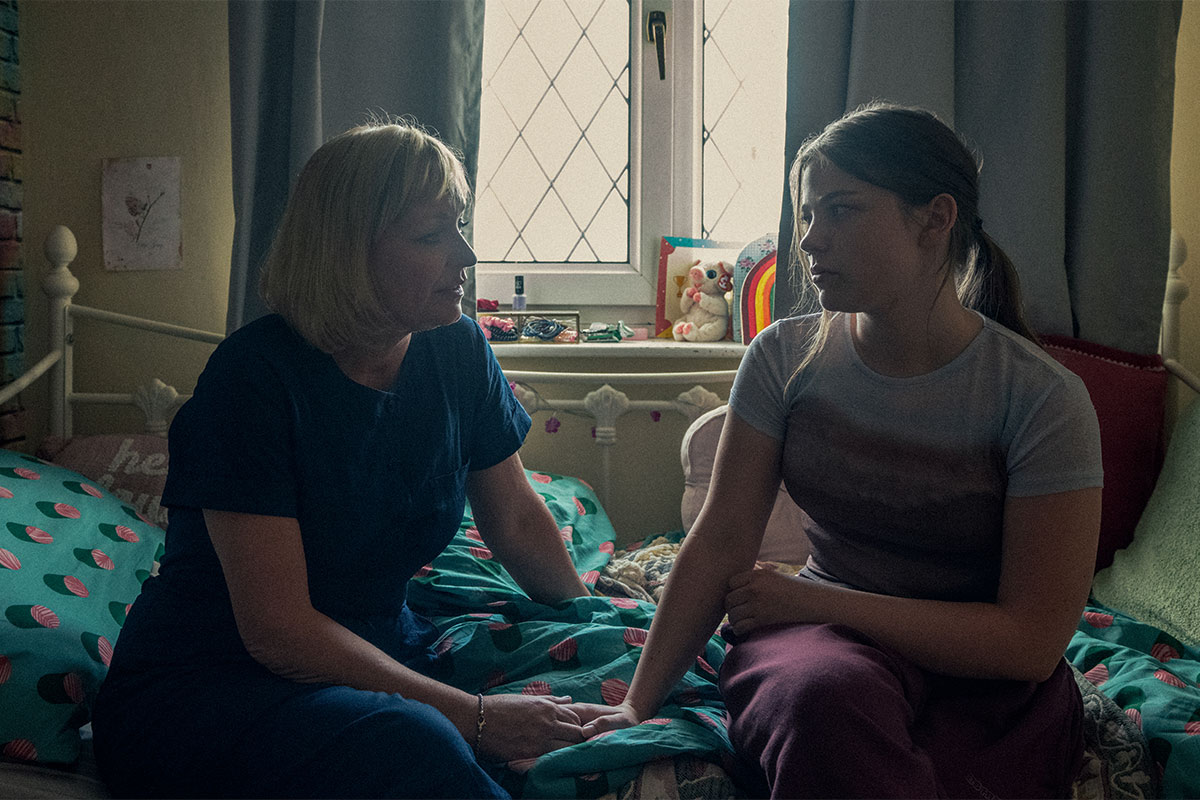
The police drag thirteen-year-old Jamie from his space-decorated bedroom straight to the police station. He is suspected of the murder of a classmate. When the actors literally open the door in the first few minutes of a pilot episode, you might think that action is guaranteed from then on. But Stephen Graham’s four-part mini-series “Adolescence” is different. It’s not about finding out who stabbed Katie. It was Jamie; his gruesome deed was captured on a CCTV camera and is shown to his father and the audience. The more intriguing and painful question, which continues to the end of the series and from there into the real world, is: why does a teenage boy stab a girl until she dies?
As the series progresses, radical corners of the internet crystallize as a potential cause. Stephen Graham, who wrote “Adolescence” with Jack Thorne and shines as Jamie’s father Eddie, emphasizes in interviews that he would rather start a discussion than point the finger of blame. The internet and social media, or more precisely, the creepy manosphere with its incels (involuntary celibates), who stir up misogyny and brainwash young boys, are nonetheless the main culprits in “Adolescence”. In contrast, there are the parents and teachers who have long since lost the plot and can’t relate to most of the terms just mentioned.
Yes, the darkest depths of humanity can be found online. You watch Nara Smith making cheese for a second too long with a mixture of fascination and curiosity and the next video pops up in which a religious fundamentalist tries to convince you that women don’t need a university education, but ten children, a husband and God. We are suddenly sliding towards fascism, in politics anyway, but also in various corners of the internet. Young men are indeed being radicalized, soaking up Andrew Tate’s bullshit like sponges. Of course, this manifests the misogynistic idea that men have a right to women and their bodies. But: this mindset has been rotting the brains of growing men not just since Andrew Tate and co. and since we logged onto the World Wide Web. Patriarchy is ancient. The Internet simply allows it to reach its most dangerous and disgusting peak.
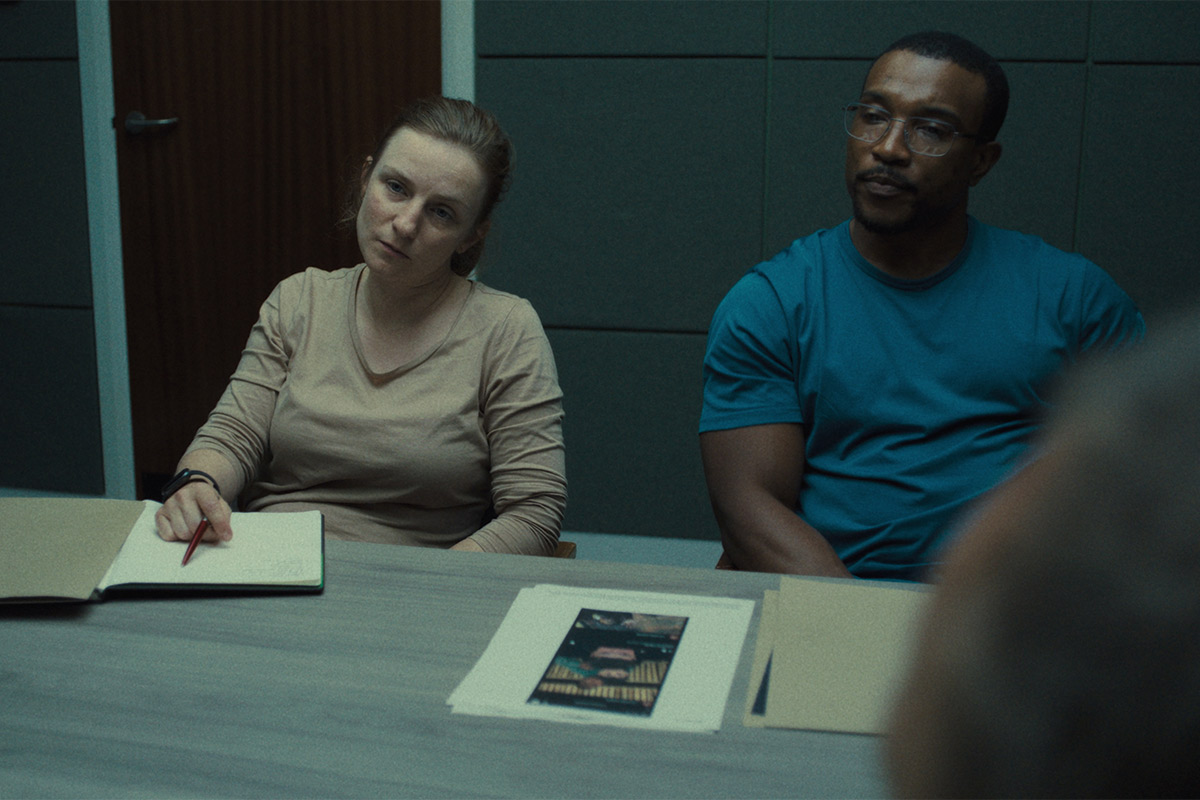
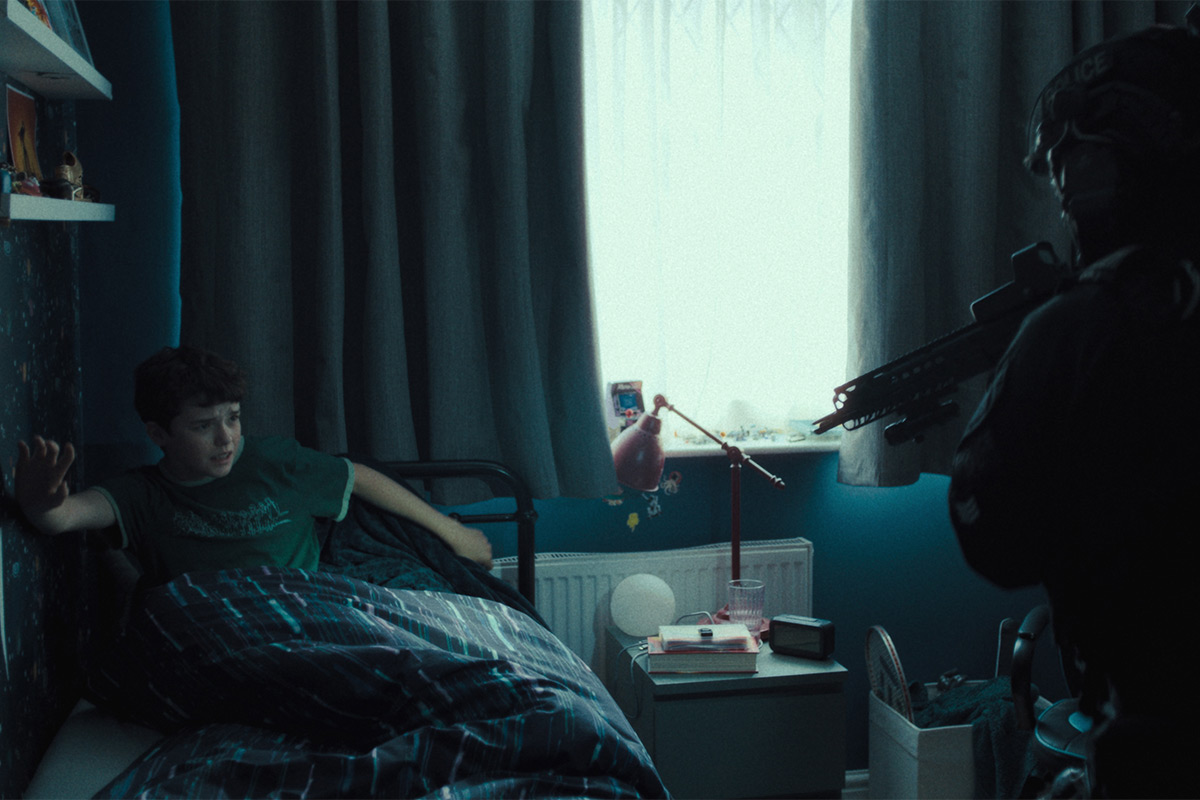
Men are more likely to be listened to
The huge hype surrounding the series leaves mixed feelings. Mostly good ones, because: What feminists have been saying for decades is now finally being half-heard. Is it because the series is mainly about men and was produced by men? The outcry and horror at the fictional murder of Katie leaves a somewhat pale aftertaste when you consider that similar scenarios happen all the time in real life.
In 2025, 12 femicides, i.e. murders of women, were committed in Switzerland. This means that the statistic has doubled compared to the previous year and now stands at one femicide per week. In every case, the perpetrator was a man, usually in a relationship with the murdered woman: Ex-husband, uncle, brother – rarely is it the evil stranger who appears out of nowhere. Germany even has one femicide a day. The newspapers continue to write about relationship dramas and treat the cases as exceptions, even though they happen so regularly.
Perhaps that’s what bothers us: in real life, it’s mainly women who mourn murdered women, organize themselves into collectives to draw attention to femicides and violence – only to be devalued as man-hating feminists. After “Adolescence” has flickered across all our screens, the male cultural journalists make statements, interview Stephen Graham and act a bit as if this is all a brand new topic.
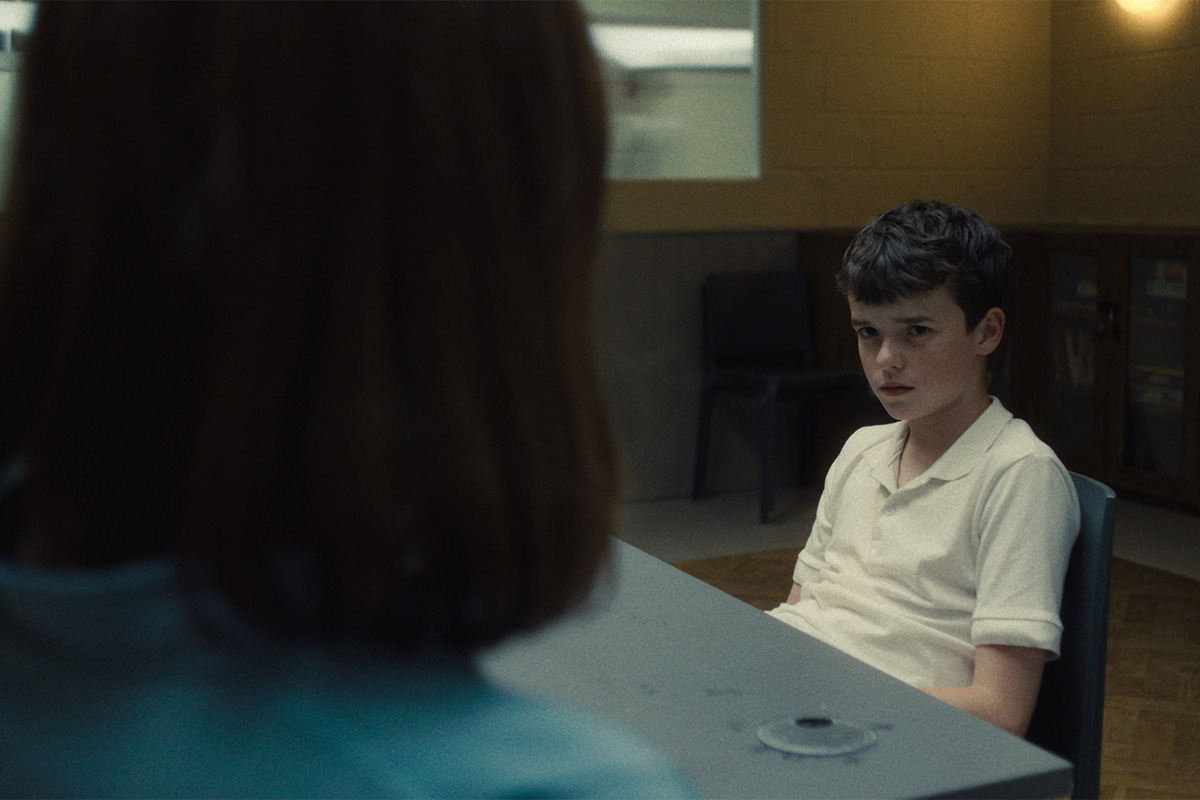
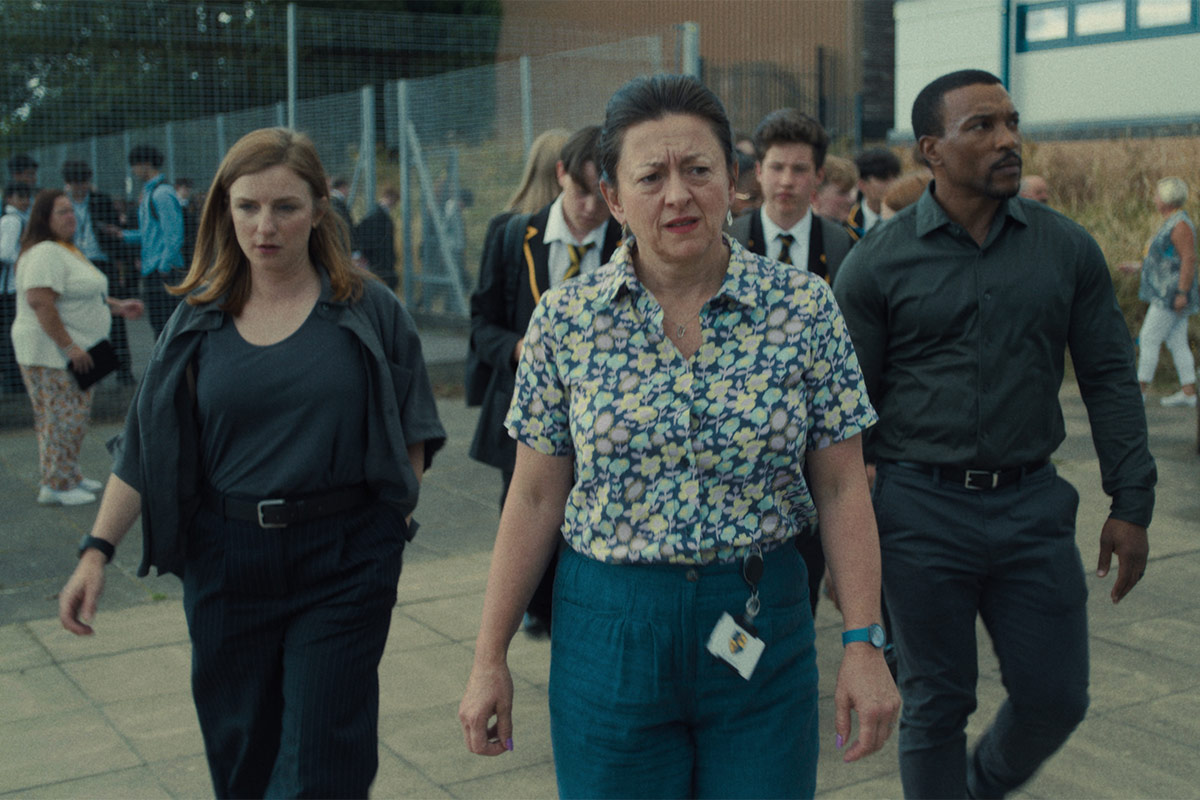
It’s worth taking a look
Nevertheless, it is worth watching the almost four hours. The elaborate one-take shots of the individual episodes and the outstanding acting talent of each individual actor – especially Owen Cooper as Jamie – make the series worth watching. Stephen Graham is a rare specimen of a man who uses his range and “old white man” privilege to good effect. He deserves every positive word and all the attention for “Adolescence”.
The helplessness of the parents, who have no idea what their son is up to online, is also realistic and relevant. The fact that even the highly intelligent psychologist reaches her limits with Jamie, that classmates want to justify Katie’s murder because they apparently bullied Jamie – these scenarios are a painfully realistic reflection of our society.
Perhaps we’ll have to settle for “better late than never” and hope that a series that has been streamed over 100 million times can actually help to curb the increasing misogyny of adolescent boys and stimulate a fruitful discussion around masculinity.
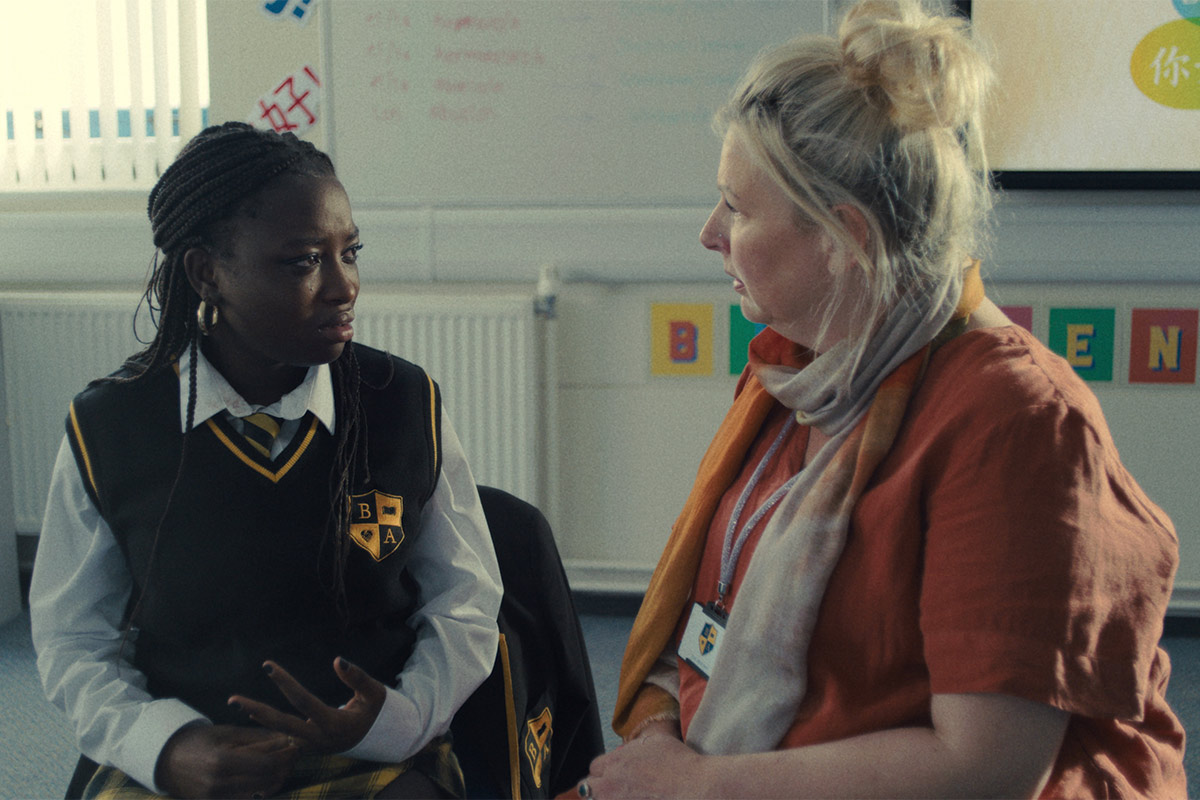
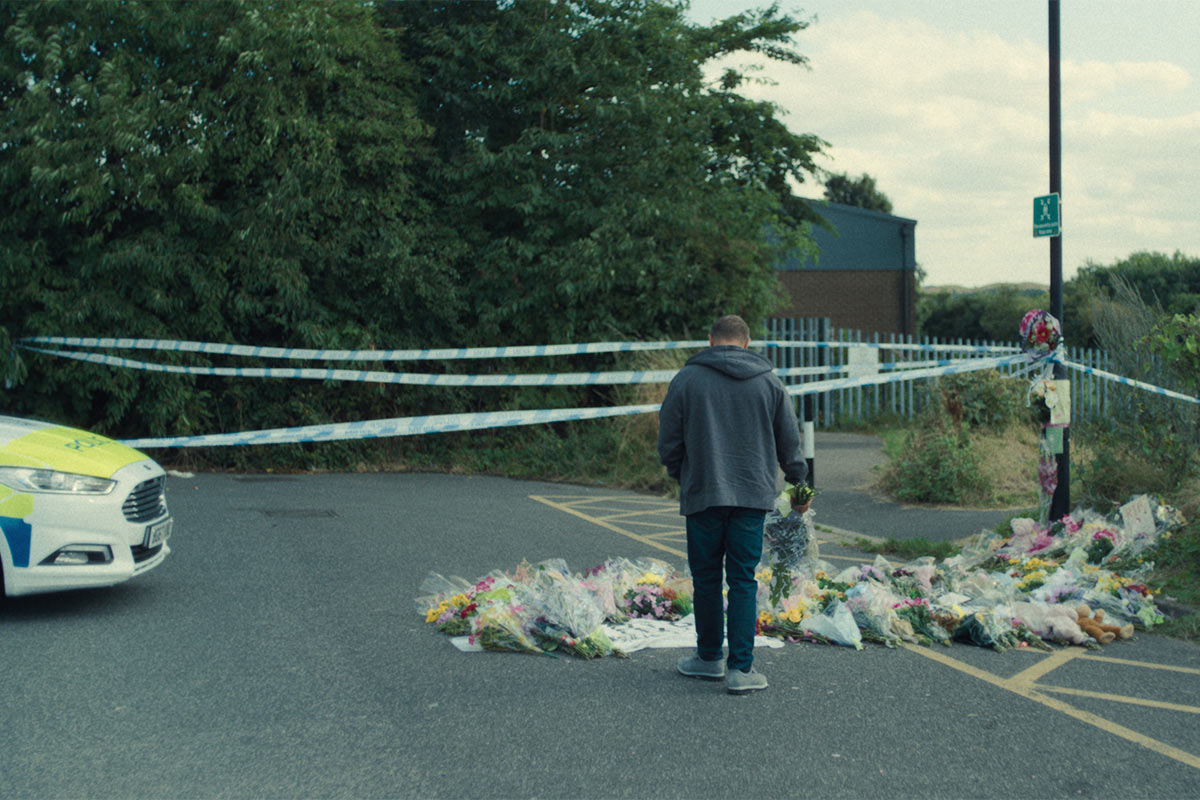
You can hear and see what Stephen Graham has to say about his show here.
Looking for lighter fare? Here are 8 movies with a spring mood for you.
Photos: © Netflix








